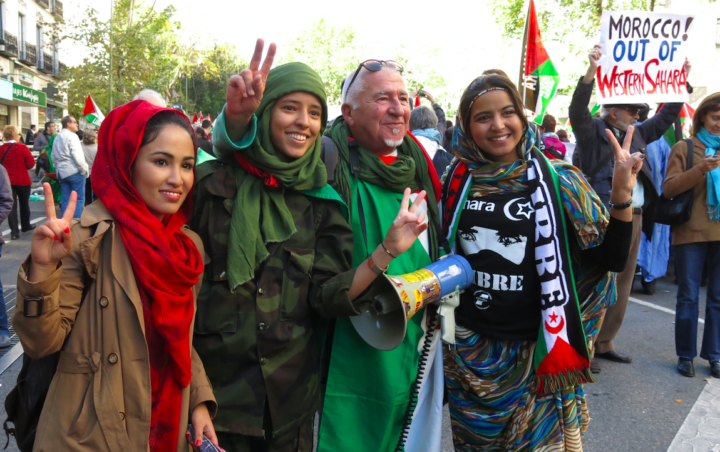Today, on November 13th 2020, several media outlets have reported that the Moroccan army launched an operation near the border crossing at Guerguerat against a group of Saharawi protesters.1 The representatives of the Saharawi people had previously stated that any such Moroccan action would be considered an aggression to which they would respond, and that this would mean the end of the ceasefire agreement between the parties.2 While early reports are still unclear, the developments today represent a clear threat of an outbreak of a new war.
In 1991, the United Nations and the international community made a promise to the Saharawi people that a referendum would be organized, and that they freely and fairly would get to decide their own fate. 30 years later, that promise remains unfulfilled. Today’s events demonstrate that a continued status quo and continued inaction is not sustainable and not acceptable. The International Fellowship of Reconciliation (IFOR) was founded over 100 years ago in response to the horrors of the First World War. Since then, IFOR has taken a consistent stance against war and its preparation. When people and organizations commit themselves to action, war and conflicts can be prevented and transformed through nonviolent means.
Such action is urgent and well overdue. The UN needs to take concrete steps to deescalate the current situation and demonstrate a serious commitment to renewed negotiations. IFOR welcomes any efforts by the UN to immediately seek an end to the current military escalation. These efforts must be intensified. Further, IFOR calls upon the UN Secretary-General António Guterres to without delay appoint a new UN Personal Envoy for Western Sahara to demonstrate that continued status quo is not acceptable. The position has been vacant for 18 months. With the vacancy, the main avenue for non-violent engagement between the parties is closed and the peace process is at a standstill. The immediate appointment of a new Personal Envoy is the very least that the UN can do to signal to those desiring a non-violent resolution to the conflict that such a path is still possible. The consequence of continued stalling has been made clear today.
IFOR also calls on the governments in the region and around the world to contribute to a peaceful solution of the Western Sahara conflict and the implementation of the fundamental rights of the people living on those territories. The UN Member States must act in accordance with the UN Charter3 and demonstrate that continued military escalation is unacceptable. The outbreak of a new war in the region would constitute a grave risk for people’s lives and livelihoods. The Covid-19 Pandemic has put severe strains on an already difficult situation and would further complicate any humanitarian and other relief efforts that would follow a war. It is imperative that this is avoided and that a credible path to a peaceful resolution is established.
- For example, Al-Jazeera. Morocco troops launch operation in Western Sahara border zone. Retrieved November 13, 2020. https://www.aljazeera.com/news/2020/11/13/morocco-launches-operation-in-western-sahara-border-zone
- Sahrawi Arab Democratic Republic Ministry of Information. Press Release November 9, 2020.
- In particular, Article 1 of the UN Charter: “The purposes of the UN is to maintain international peace and security, and to that end: to take effective collective measures for the prevention and removal of threats to the peace, and for the suppression of acts of aggression or other breaches of the peace, and to bring about by peaceful means, and in conformity with the principles of justice and international law, adjustment or settlement of international disputes or situations which might lead to a breach of the peace”.






